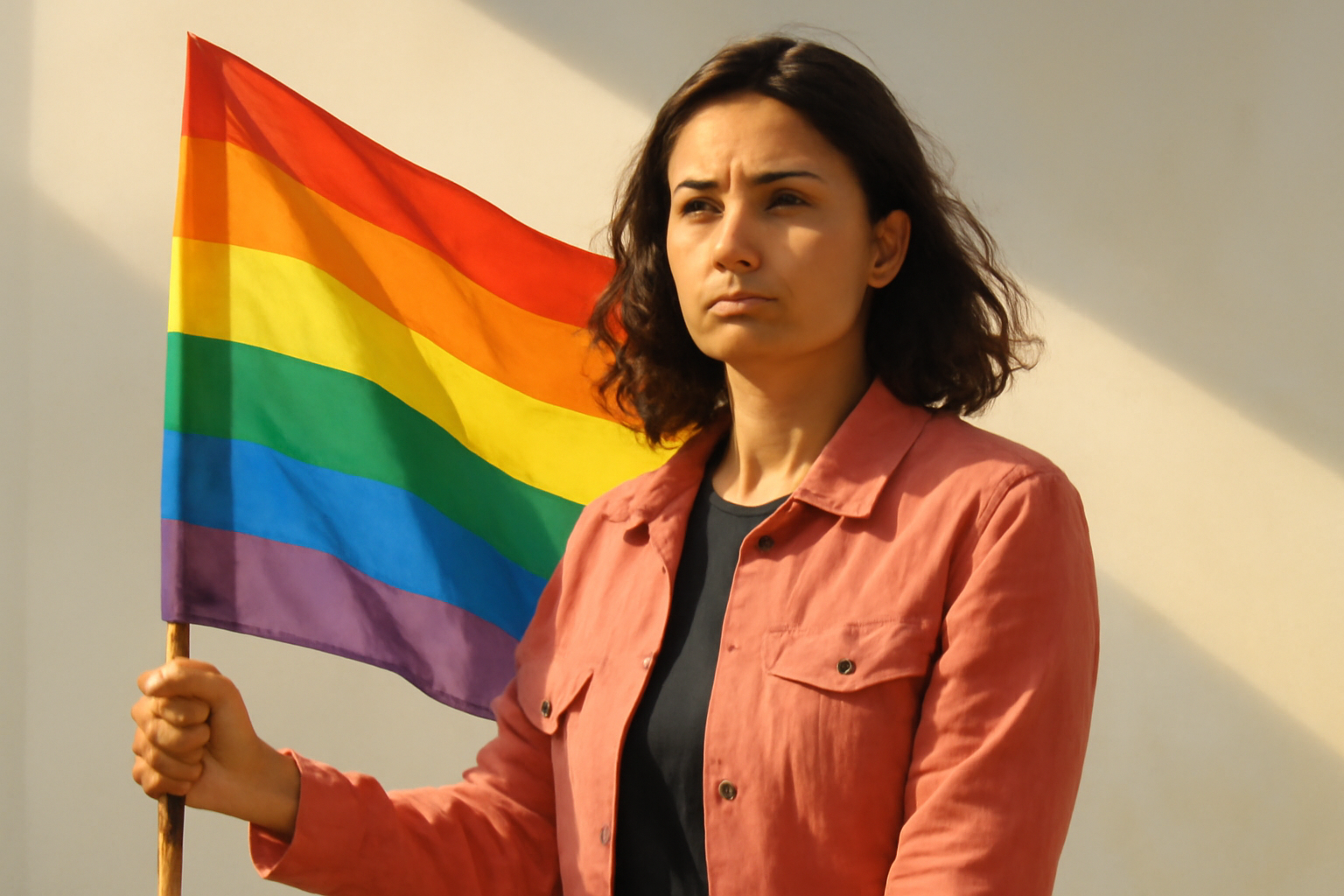
As we unite to honor LGBTQ+ History Month, it is crucial to urge the government to prioritize compassion over cruelty towards LGBTQI+ individuals seeking refuge in the UK, writes Leila Zadeh, executive director of the UK charity Rainbow Migration.
Over the past thirty years, significant milestones have been achieved in establishing protections for LGBTQI+ individuals moving to the UK to escape persecution. Despite these advancements, these protections remain under constant threat.
In the early 1990s, lesbian, gay, and bisexual couples, alongside their legal advocates, campaigned tirelessly to allow partners of British citizens to remain in the UK, leading to the formation of Rainbow Migration, initially called the Stonewall Immigration Group.
Relentless campaigning led to the Unmarried Partners Concession in 1997, marking the first positive legal recognition of same-sex couples in British law. This paved the way for the Civil Partnership Act (2004) and the Marriage Act (2013).
Rainbow Migration provides both practical and emotional support for LGBTQI+ individuals seeking asylum. However, it wasn't until nearly five decades after the 1951 Refugee Convention that LGBTQI+ individuals were recognized as eligible for refugee protection. Restrictive interpretations initially denied them safety until 1999, when UK courts, pressured by advocacy groups, formally acknowledged LGBTQI+ people as a social group eligible for asylum.
Warren, a gay man from Malaysia, became the first LGBTQI+ individual granted refugee status in the UK in 2000 after fleeing years of homophobic abuse. Over twenty years later, he still recalls the joy of that moment: "I was so happy because, for the first time, I felt human and whole again."
In 2010, the UK Supreme Court issued a landmark ruling in the case of HJ (Iran) and HT (Cameroon), affirming that no LGBTQI+ asylum seeker could be expected to hide their sexual orientation to avoid persecution in their home country.
Despite these hard-won protections, challenges persist, especially the daunting task of proving one's sexual orientation or gender identity during the asylum process. Many LGBTQI+ individuals, fleeing violence, only have their testimony as evidence. As Adams, a bisexual man from Ghana, expressed: “All I had was myself and my sexuality, but they said that wasn’t enough. It’s so difficult to get evidence of your sexuality.”
Recent regressive laws have exacerbated these challenges. The Nationality and Borders Act of 2022 introduced a higher standard of proof for refugees, demanding even more evidence from LGBTQI+ individuals, increasing the risk of their return to perilous situations.
The 2023 Illegal Migration Act allows the government to deny refugee protection based on the method of arrival in the UK, enabling indefinite detention deemed ‘reasonable’ by the government before deportation. Detention is a harrowing experience for anyone, but can be even more devastating for LGBTQI+ individuals who face homophobic bullying and abuse.
This law additionally denies refugee protection to individuals from a list of ‘safe’ countries, many of which remain dangerous for LGBTQI+ individuals, such as India, Albania, or Georgia. Noah, a gay man from Georgia granted refugee status in the UK a year ago, stated: “No one can know you are gay in Georgia. If people do, homophobic individuals will try to attack you.”
Time for Real Change
Recently, the government introduced its new Border Security, Immigration and Asylum Bill. While it includes measures like repealing the Safety of Rwanda Act, it largely continues the harsh policies of previous administrations.
However, change is still possible. As the bill moves through Parliament, the government faces a choice: will it transform the UK into a sanctuary for LGBTQI+ asylum seekers, or persist in turning away from the LGBTQI+ community?
Now is the time for genuine change. The government must commit to protecting LGBTQI+ individuals seeking sanctuary in the UK by fully repealing the Illegal Migration Act and the Nationality and Borders Act, and ending the detention of LGBTQI+ asylum seekers.
Leila Zadeh, executive director of Rainbow Migration, leads the charge in advocating for a safe haven for LGBTQI+ individuals seeking asylum in the UK.
Related Posts
Triumphant Trans Woman Wins Legal Battle and Inspires Others to Stand Up for Their Rights
Breaking new ground: a landmark victory in transgender rights After battling in courtrooms and enduring endless challenges, Diana Portillo, a transgender woman, has secured a monumental victory in her decade-long fight against workplace discrimination. The result? Nearly $1 million awarded in a historic settlement. But this isn't just a win on paper—it represents a powerful precedent in combati [...]
Pride Month in Latin America: Protests and Demands for Equality
**Celebrating Pride and advocating LGBTQ+ rights in Latin America** Pride Month in Latin America was a lively mix where celebration met activism. Communities united, not just throwing a party but making a stand—demanding equality and pushing governments toward better protection and rights recognition. Throughout Latin America, pride events erupted in marches and cultural displays, each with a c [...]
Transgender Erasure Actions Implemented by National Park Service
```html Trump administration's impact on national park service and transgender recognition The Trump administration made notable moves in undermining transgender representation, which included directing agencies like National Park Service not include "T" and "Q" when they refered “LGBTQ” in any official communication. This move seems part a broader plan by this administration aimed at reducin [...]